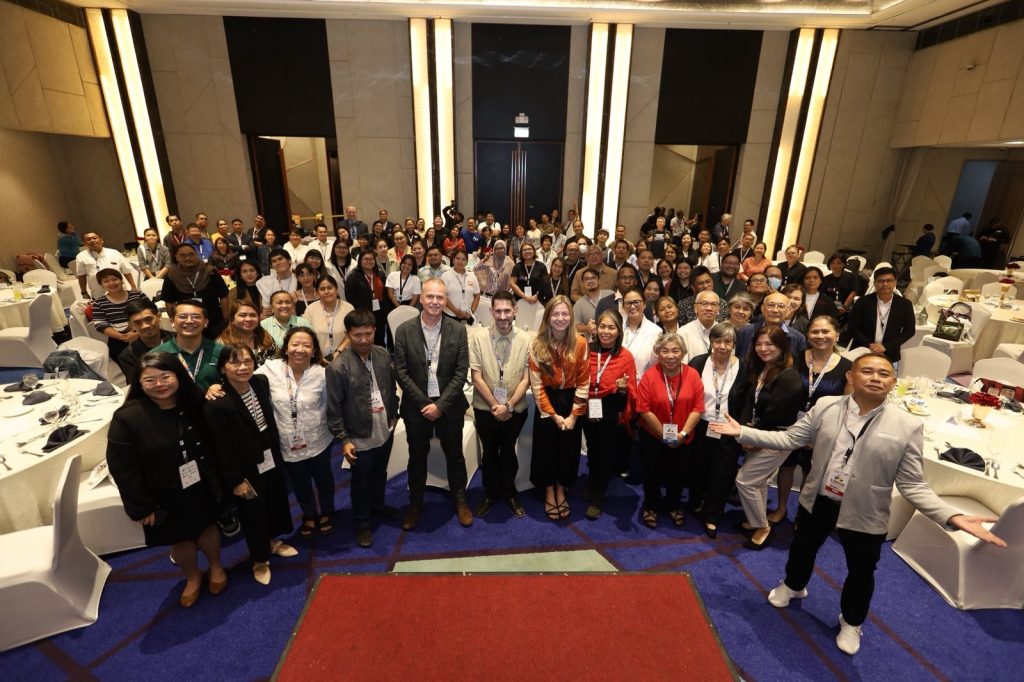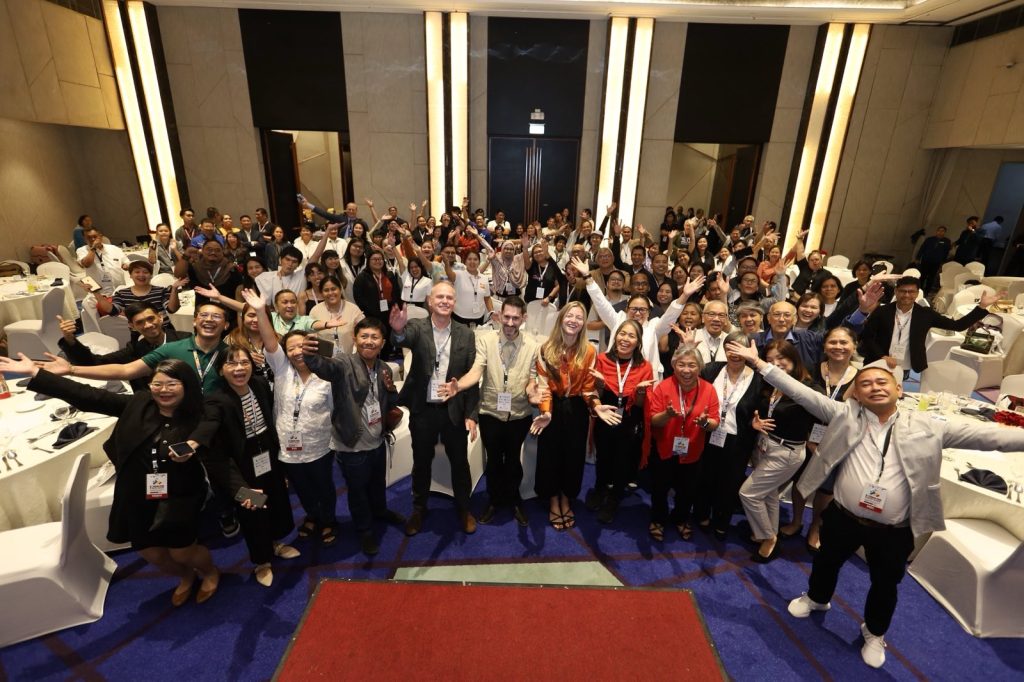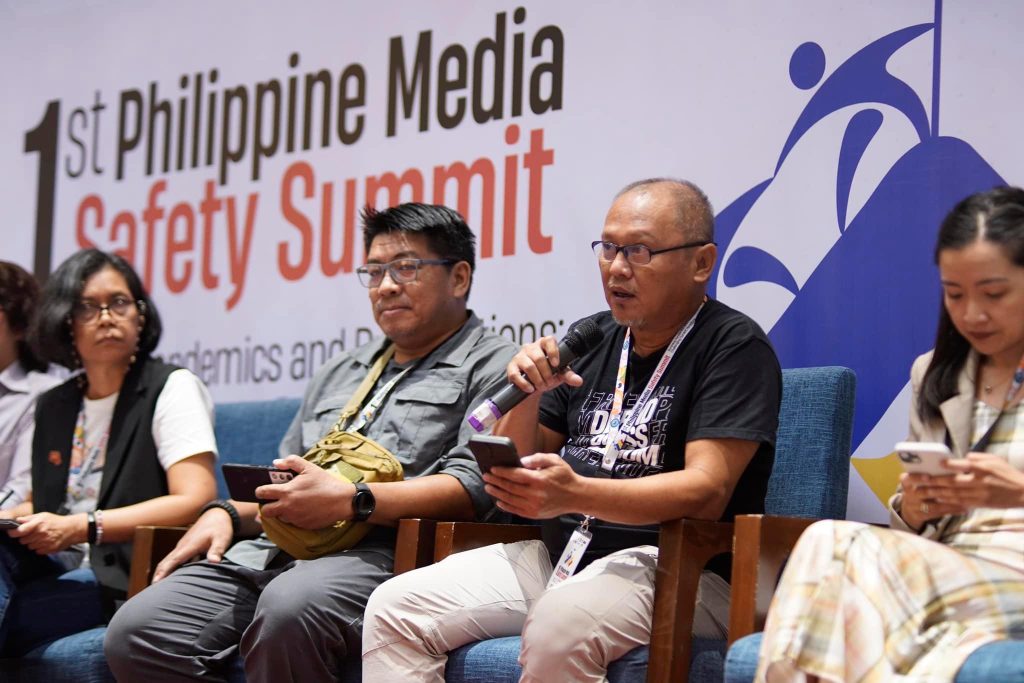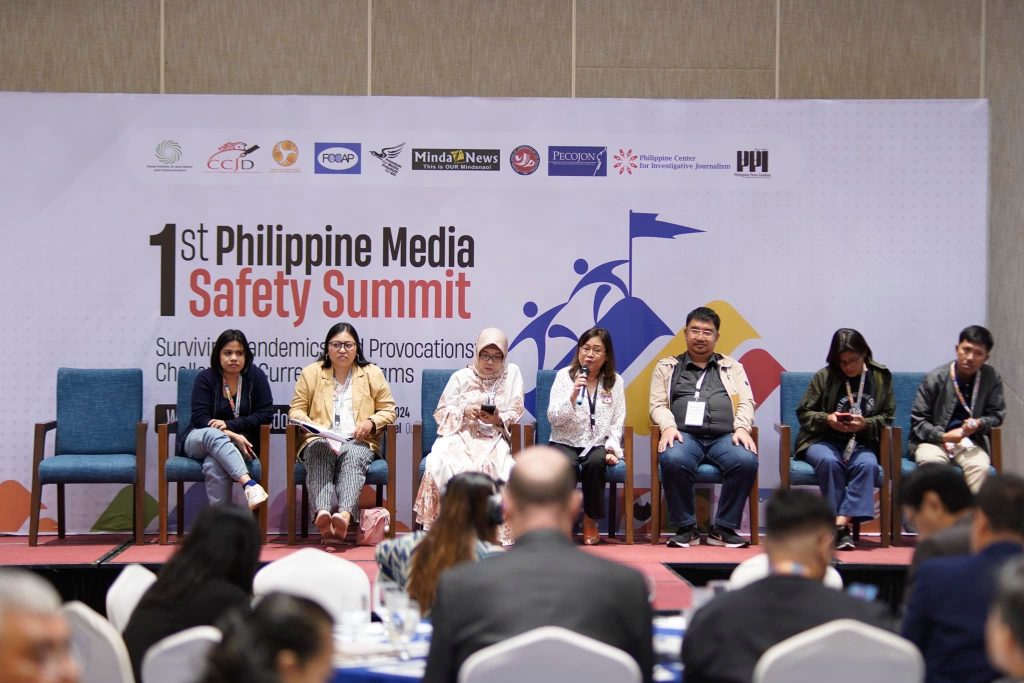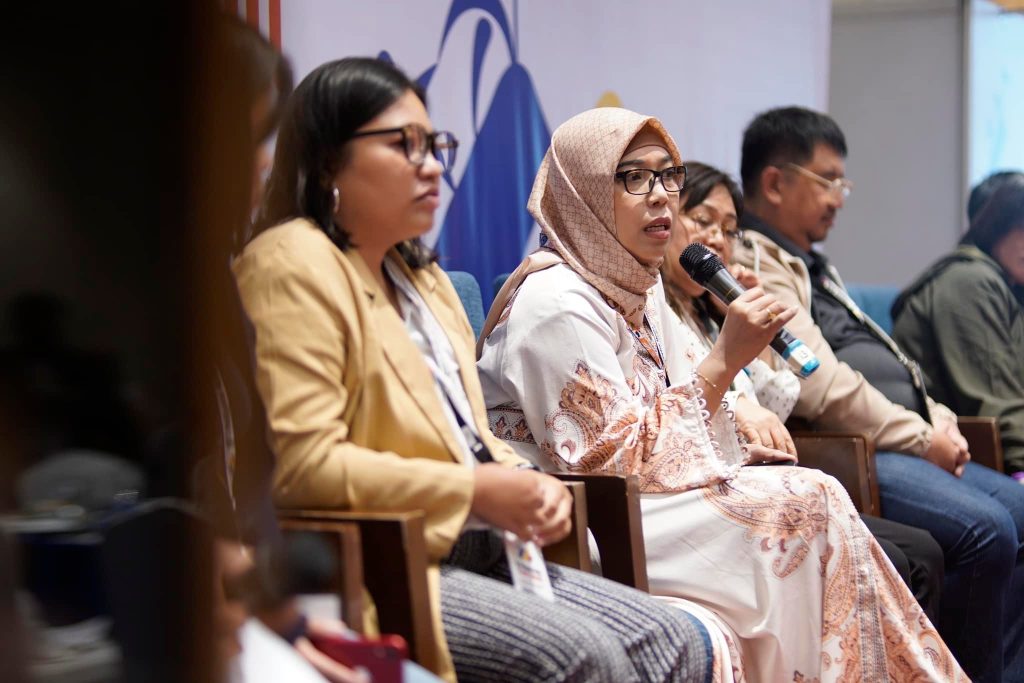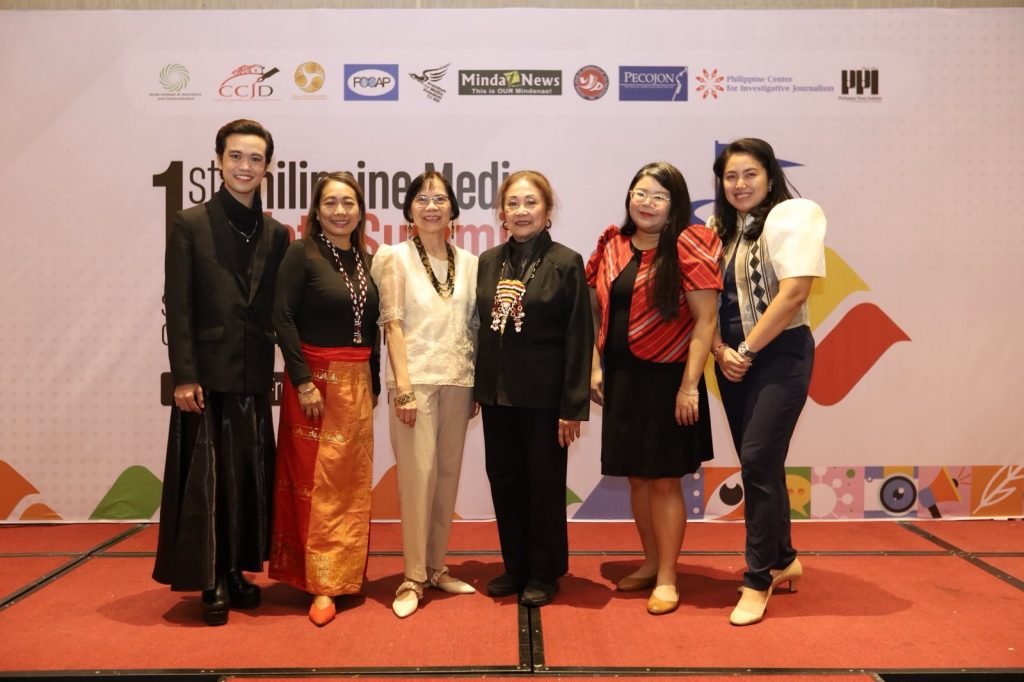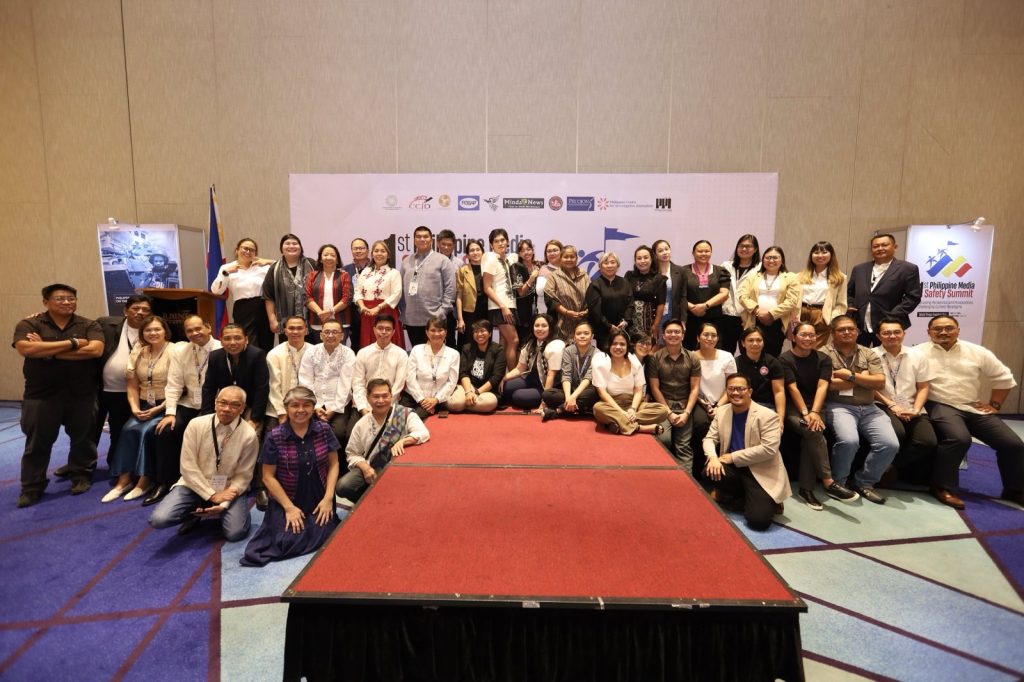On World Press Freedom Day, media workers and press freedom advocates join 1st Philippine Media Safety Summit
“Acts of aggression and harassment against the media are an affront to the exercise of press freedom.”
Commission on Human Rights (CHR) Chairperson, Atty. Richard Palpal-latoc, underscored this during his keynote speech at the historic 1st Philippine Media Safety Summit at Luxent Hotel in Quezon City, May 2, 2024.
As Jes Aznar of the Foreign Correspondents Association of the Philippines (FOCAP) said, “We have pushed and made sure that this event is a safe place for us to share our experiences on the ground—thoughts and sentiments that we can use and learn something from to move forward.” Aznar first proposed the holding of a media safety summit during a media safety training in 2022.
Dr. Nymia Simbulan, Philippine Alliance of Human Rights Advocates (PAHRA) Chairperson, discussed human rights as an overarching framework of journalist safety.
Center for Media Freedom and Responsibility (CMFR) Executive Director Melinda Quintos de Jesus presented the state of media safety in the Philippines based on data from CMFR corroborated by reports from the National Union of Journalists of the Philippines (NUJP).
Red Batario, Center for Community Journalism and Development (CCJD) Executive Director, spoke about the gains and gaps in addressing safety, security, and sustainability concerns using the Philippine Plan of Action on the Safety of Journalists (PPASJ) as a framework.
Asian Institute of Journalism and Communication (AIJC) Director Therese San Diego Torres gave a synthesis of the discussions on the first day of the summit, while AIJC Senior Director Ann Lourdes Lopez discussed the mechanics and guidelines for the panel discussions and breakout sessions on the following day.
On May 3, the second day of the summit and coinciding with World Press Freedom Day, two panel discussions were conducted to identify and address vulnerabilities through stories from the communities.
In the panel discussions, resource persons talked about conducive working conditions and duty of care, sustainable business models in print and broadcast media, the state of freelance journalism in the Philippines, gender-based threats and attacks, issues confronting visual journalists, and the role of journalism education in media safety.
Joining the first panel were Jazmin Bonifacio of Eastern Visayas News and Faysal Mosol of the Sangil Tribe, Davao Occidental, for the session on Ensuring Conducive Working Conditions and Duty of Care; Dexter See of the Herald Express in Baguio, Amalia Cabusao of Mindanao Times and the Mindanao Institute of Journalism, and Faydiyah Akmad of the Bangsamoro Multimedia Network Inc., for the session on Searching for a Sustainable Business Model: The Print and Broadcast Business Amidst a Rapidly Changing Media Landscape; and Maro Enriquez and Joanna Aglibot of the Filipino Freelance Journalist Guild (FFJ), for the session on Facing the Challenges of Freelance Journalism.
In the second panel were veteran journalist Julie Alipala of Zamboanga City and Atty. Ma. Sol Taule of the National Union of Peoples’ Lawyers for the session on Addressing Gender-Based Threats and Attacks; photojournalists Bobby Lagsa from Cagayan de Oro and Vic Kintanar from Cebu, for the session on Tackling Issues Confronting Visual Journalists; and Dr. Ma. Diosa Labiste of the UP College of Mass Communication and John Luciano of the College Editors Guild of the Philippines (CEGP) for the session on Enhancing the Role of Journalism Education in Media Safety.
Six simultaneous workshops followed by a plenary discussion moderated by Rowena Paraan, Philippine Center for Investigative Journalism (PCIJ) Training Director, provided a venue for exchanging views on the issues of sustainability, security, and safety faced by media workers.
The two-day media safety summit, hosted by Ariel Sebellino and Joyce Pañares of the Philippine Press Institute (PPI), ended with the crafting and signing of the Philippine Media Safety Summit Declaration.
With the theme “Surviving Pandemics and Provocations: Challenging Current Paradigms,” the summit was attended by more than a hundred mainstream and community-based journalists, newsroom managers, news editors, and press freedom advocates from all over the country.
The summit was convened by AIJC, CCJD, UP College of Mass Communication, FOCAP, Freedom for Media Freedom for All (FMFA) Coalition, MindaNews, NUJP, Peace and Conflict Journalism Network (PECOJON), PCIJ, and PPI.
The event was supported by the Norwegian Ministry of Foreign Affairs, United Nations Joint Programme on Human Rights Philippines (UNJP), UNESCO, Internews, USAID, and International Media Support (IMS), as well as corporate partners AirAsia, Cebu Pacific, and San Miguel Corporation.
